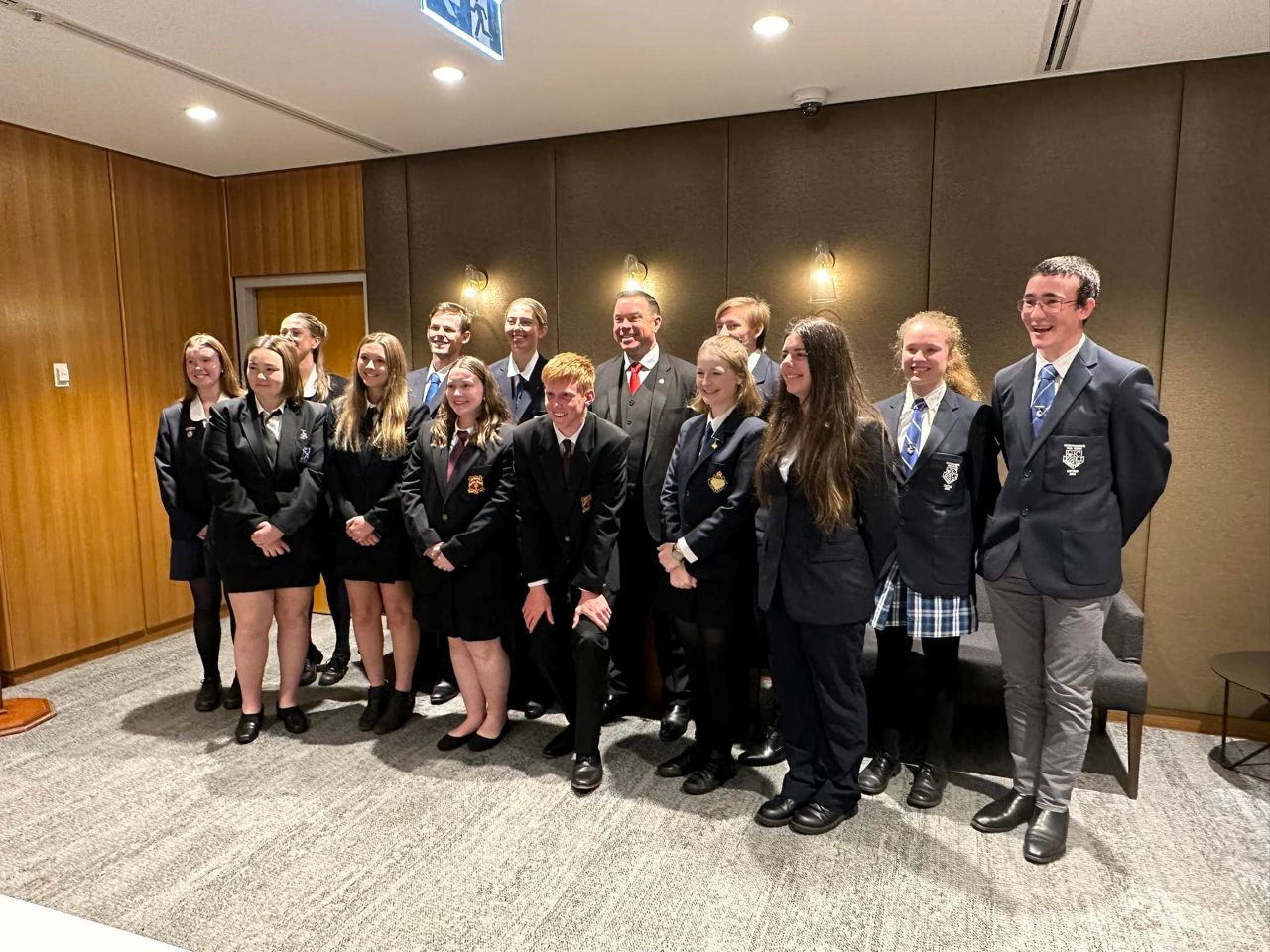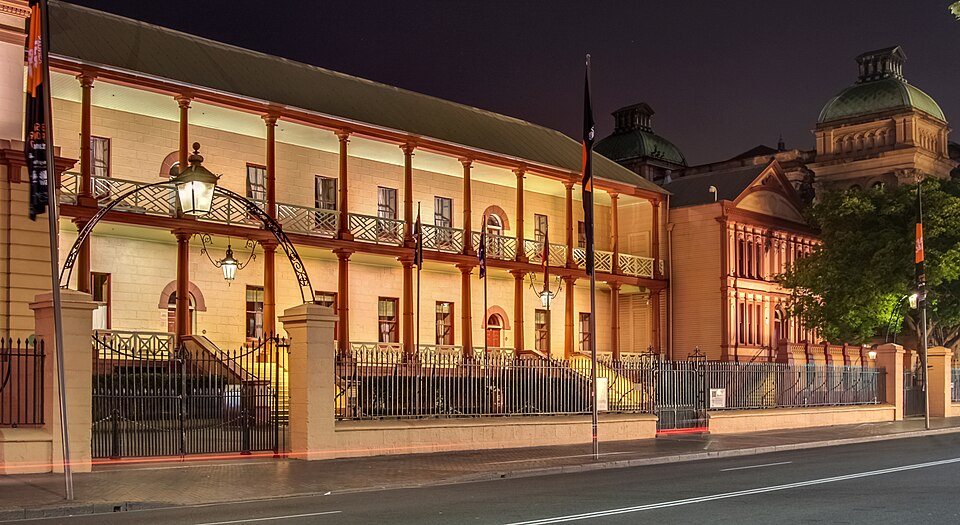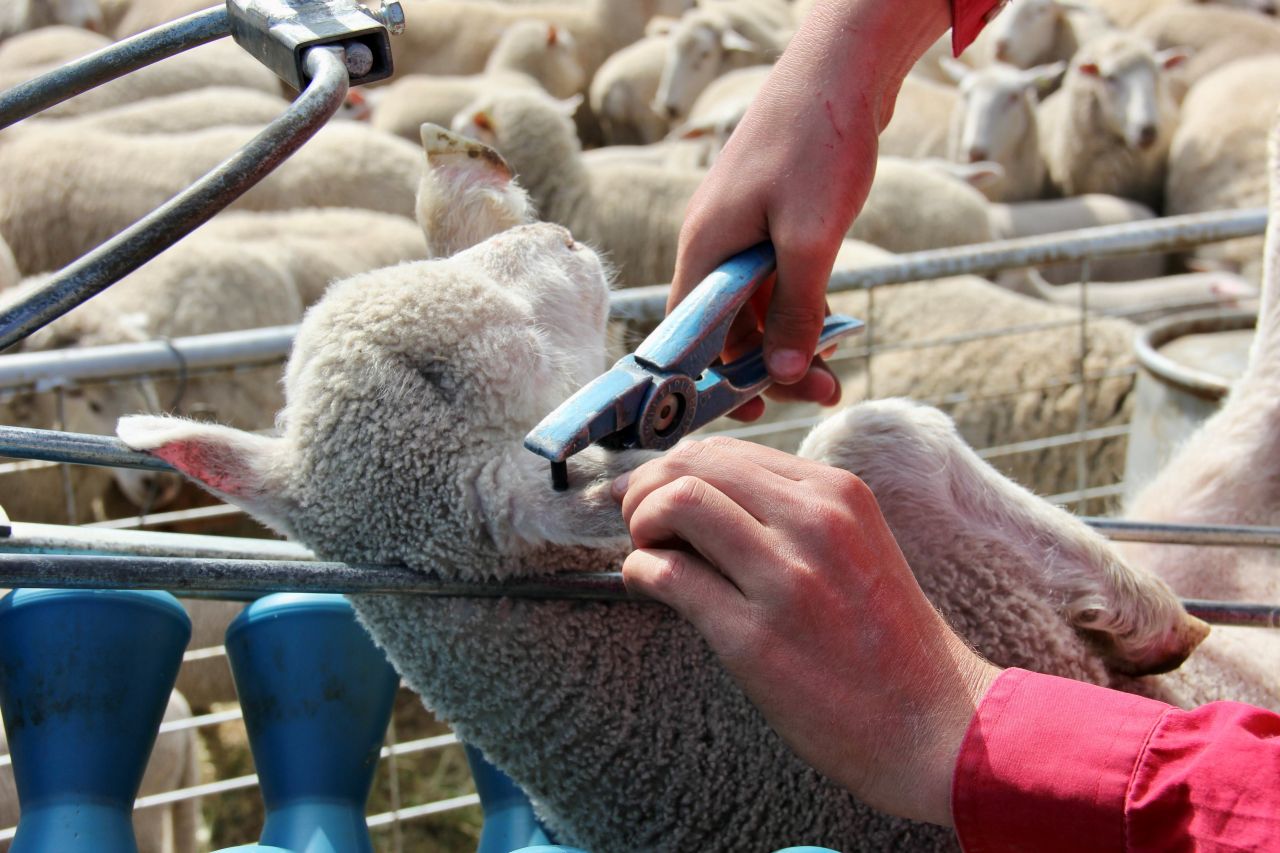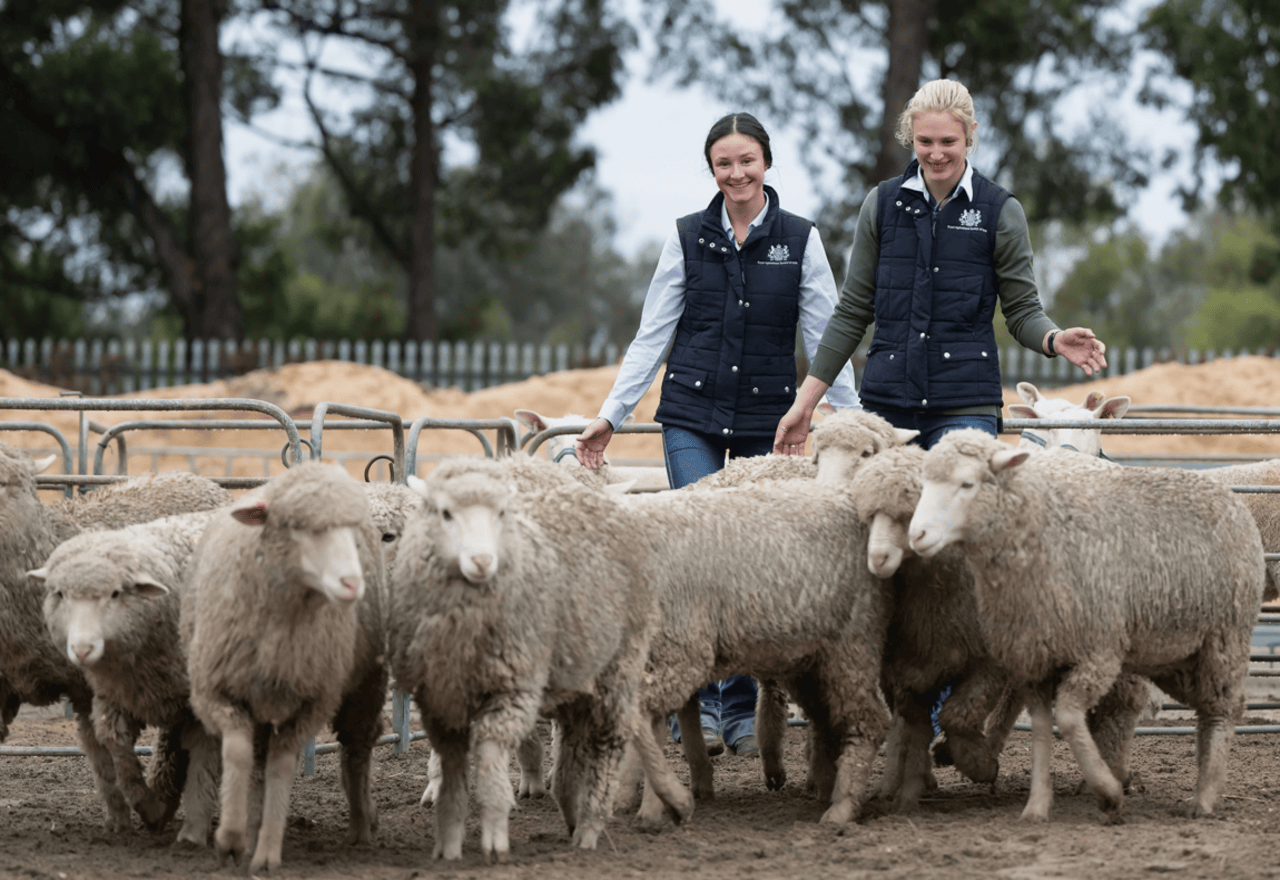Civics slides: Costs hinder Western Plains students visiting parliament
Kristin Murdock
14 August 2025, 3:40 AM
 Visiting Roy Butler to take part in the Student Leadership program at the Parliament of NSW in 2023 were students from Narrabri High School, Dunedoo Central School, Coonamble High School, Tottenham Central School, Lake Cargelligo Central School, Gilgandra High School, Gulargambone Central School, Nyngan High School, Condobolin High School and Coonabarabran High School.
Visiting Roy Butler to take part in the Student Leadership program at the Parliament of NSW in 2023 were students from Narrabri High School, Dunedoo Central School, Coonamble High School, Tottenham Central School, Lake Cargelligo Central School, Gilgandra High School, Gulargambone Central School, Nyngan High School, Condobolin High School and Coonabarabran High School.Civics knowledge among Australian students is in decline, with new national testing showing the lowest levels since records began.
Member for Barwon Roy Butler recently addressed parliament in Sydney and said the drop underlines the importance of giving young people direct exposure to the democratic process.
But for many schools in remote Western NSW, the cost of travel to Parliament is a major barrier.
“Recently we heard that a test conducted by the Australian Curriculum, Assessment and Reporting Authority (ACARA) found that only 43 per cent of Year 6 students were up to the proficient standard, which is
down from 53 per cent recorded in 2019,” Mr Butler said.
“Among Year 10 students, that figure is 28 per cent – a sharp drop from 38 per cent back in 2019.
"ACARA says it is the lowest level since testing began in 2004.
"It is clear much more needs to be done to educate children about citizenship in this country, about voting, and about government levels.”
Mr Butler regularly hosts students at the NSW Parliament through the Secondary Student Leadership Program, which invites young people in leadership roles to Macquarie Street for an immersive
civics experience.
“One of the favourite things I get to do as a parliamentarian is meet with students from my electorate who come to Parliament,” Mr Butler said.
“They are already making an effort to better understand how things work, particularly around their obligations and duties as citizens, and how people can become active in their community and make
some kind of difference.”
The program includes sessions where parliamentarians share their personal experiences and motivations for entering politics, followed by question time with the students.
“They are always good questions, showing how switched on most of them are, which bodes well for the future if it’s in the hands of such intelligent and engaged individuals,” Mr Butler said.
Travel costs not adequate
But distance and cost make it difficult for many regional schools to attend.
“It would be great if all students from my electorate could make the trip to Macquarie Street.

Exposing school students to the parliamentary process can help counter cynicism toward politics and politicians, according to Member for Barwon, Roy Butler.
"However, making the journey from some of the remote corners of Western New South Wales is a big ask,” Mr Butler said.
“It takes a lot of time and money to transport students those distances.
"There are subsidies available for regional students to travel to Parliament, but they are not adequate.
“The subsidies are paid on a flat rate of $300 per school for any schools located over 120 kilometres away from Sydney.
"For students travelling from Broken Hill, which is 12 hours away by road, that $300 is not even going to pay for the fuel one way.
"I’ve spoken to the Education Department and Parliamentary Services about the possibility of paying subsidies on a sliding scale, paying more for schools the further away from Parliament they are.”
Mr Butler said visiting Parliament is “one of the most engaging ways students can learn more about civics because it gets them out of the classroom and they get to meet and interact with the people
who represent them.”
He believes a solid understanding of civics helps young people navigate government systems, dispels confusion over which level of government is responsible for what, and strengthens democracy by
reducing the impact of misinformation.
“The deep cynicism of our politicians and government is also partly rooted in a lack of deep understanding of civics,” Mr Butler said.
“A good knowledge of our political system can help shore up our democracy by arming them with a better knowledge of how things work, making it less likely for people to be misled.”
“Our young people should see that their representatives are human and accessible.
"That can help counter some of the cynicism and distrust of politics.
"I do hope that we see many more students make their way to Parliament.”
NEWS



